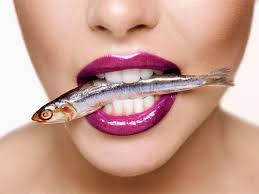How do I choose the best mouthwash for me?

Oral hygiene is extremely important and choosing the best mouthwash for your dental needs is not only important to your teeth but to your overall heath.
Regular brushing and, of course, flossing is a must but adding a good mouthwash rinse to your daily routine is also essential. Brushing and flossing help get rid of food that gets lodged in the teeth and odor-causing bacteria. Don’t forget to brush your tongue as well as it’s porous and can hold harmful bacteria. Mouthwash can help rid the mouth, not only of bad, embarrassing breath but of bacteria.
Not all mouthwashes are the same. Different types of mouthwash are good for different things,
What’s the best mouthwash for fresh breath?
For keeping a fresh mouth, you can go with a mouthwash that is lower in alcohol content than the strong antibacterial types. Scope, for example, contains a germicide called cetyl pyridinium, which has anti-gingivitis and anti-plaque benefits.
If you want something all natural, Tom’s of Maine can be a good choice. They use natural germ-fighting ingredients, like witch hazel or grapefruit seed extract instead of alcohol as antibacterial agents which is good for bad breath but not serious gum disease or tooth decay.
What’s the best antibacterial mouthwash?
The best and most effective mouthwashes for fighting gum disease, plaque, and gingivitis as well as bad breath are Listerine and Cepacol. These strong rinses have been known to reduce bacteria counts in the mouth by roughly 75 percent. One drawback is that they often contain high percentages of alcohol, and have a very strong, sometimes unpleasant, taste. While alcohol can be very effective in killing germs, it can make your mouth irritated and dry. It is not recommended for children either. If you’re bothered by the alcohol in these types of mouthwashes, look for low-alcohol or alcohol-free options. There are plenty of those and they are pretty much as effective.
What’s the best mouthwash for someone with lots of cavities?
If you get a lot of cavities, fluoride rinses may be a good option for you These rinses coat the teeth with a protective film that strengthens tooth enamel, making it more resistant to decay. Lots of U.S. cities add fluoride to the city water, so if you drink lots of tap water you may be getting a good dose of it that way. Obviously, not the case with bottled or filtered water which removes the fluoride. Fluoride needs to remain on your teeth for about a half an hour to be effective. if your mouthwash contains much-needed fluoride, swish in the mouth for at least a minute and don’t eat or drink for an hour or more after rinsing.
Whatever mouthwash you choose to use, be sure to follow the instructions on the bottle and adhere to them. Don’t overdo! If you’re experiencing chronic bad breath, there could be a greater issue at hand like gum disease, infection or cavities. Cigarette smoking, certain types of foods you eat or medication can also be the cause of bad breath.
If you have persistent bad breath you may want to consult a dental professional. Breezy Bay Dental of Palm Harbor, Fl. is here for you. Give us a call at: 727-781-GUMS – (727-781-4867)